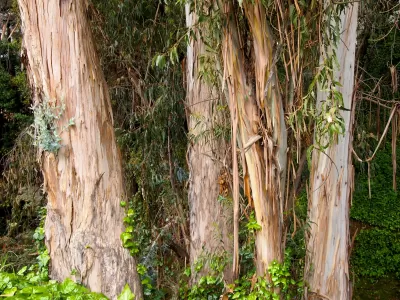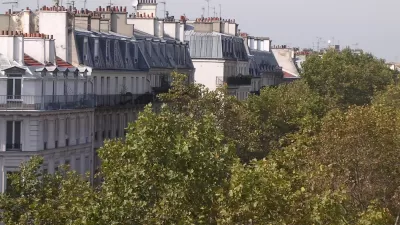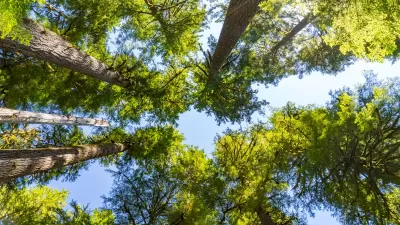The eucalyptus is an exotic species in California, and studies suggest it has contributed to an increase in wildfire hazards. But defenders of the trees say the eucalyptus is just an ecological scapegoat.

In a cartoon, journalist and illustrator Susie Cagle looks at the history of and controversy around California’s eucalyptus trees. The trees first came from Australia in the mid-1800s, and they have become an integral part of the state's ecological identity.
"But in the hills above Berkeley and Oakland, residents and agencies have been fighting over the trees and the future of the landscape at large for more than ten years, citing concerns over the repeat of the 1991 firestorm — and opposing ecological theories," says Cagle.
The eucalyptus is an invasive species that critics say has taken over ecosystems and poses a fire hazard. However, supporters say the trees keep hillsides from drying out and, as a result, leaving the trees intact makes more sense than replacing them with native vegetation.
"Decolonizing any landscape from any non-native plant is controversial work — let alone iconic, historic trees over 100 years old," notes Cagle. And the fight over the eucalyptus reflects larger issues about climate change and how communities should prepare for the coming environmental challenges.
FULL STORY: Fire-starting weed or ecological scapegoat? The battle over California's eucalyptus trees

Alabama: Trump Terminates Settlements for Black Communities Harmed By Raw Sewage
Trump deemed the landmark civil rights agreement “illegal DEI and environmental justice policy.”

Planetizen Federal Action Tracker
A weekly monitor of how Trump’s orders and actions are impacting planners and planning in America.

The 120 Year Old Tiny Home Villages That Sheltered San Francisco’s Earthquake Refugees
More than a century ago, San Francisco mobilized to house thousands of residents displaced by the 1906 earthquake. Could their strategy offer a model for the present?

LA’s Tree Emergency Goes Beyond Vandalism
After a vandal destroyed dozens of downtown LA trees, Mayor Karen Bass vowed to replace them. Days later, she slashed the city’s tree budget.

Sacramento Leads Nation With Bus-Mounted Bike Lane Enforcement Cameras
The city is the first to use its bus-mounted traffic enforcement system to cite drivers who park or drive in bike lanes.

Seattle Voters Approve Social Housing Referendum
Voters approved a corporate tax to fund the city’s housing authority despite an opposition campaign funded by Amazon and Microsoft.
Urban Design for Planners 1: Software Tools
This six-course series explores essential urban design concepts using open source software and equips planners with the tools they need to participate fully in the urban design process.
Planning for Universal Design
Learn the tools for implementing Universal Design in planning regulations.
Ada County Highway District
Clanton & Associates, Inc.
Jessamine County Fiscal Court
Institute for Housing and Urban Development Studies (IHS)
City of Grandview
Harvard GSD Executive Education
Toledo-Lucas County Plan Commissions
Salt Lake City
NYU Wagner Graduate School of Public Service





























